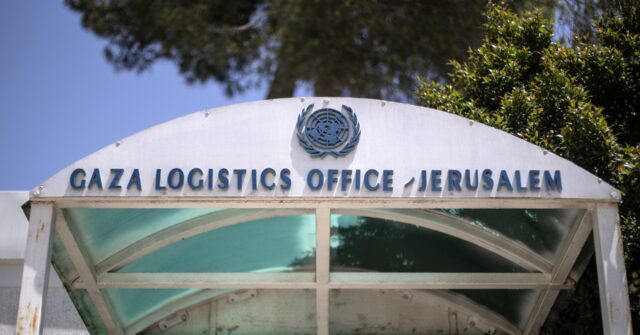In a significant development on Thursday, the Israeli government declared its intention to seize the Jerusalem headquarters of the United Nations Relief and Works Agency for Palestine Refugees in the Near East (UNRWA) and convert the site into a housing complex. This decision is part of Israel’s broader efforts to mitigate what it perceives as the harmful influence of UNRWA, the official UN body dedicated to assisting Palestinian refugees, which Israel claims has facilitated Hamas’s activities in the region. UNRWA’s resources in education and healthcare have been exploited by Hamas, as the organization focuses its efforts on terrorist activities rather than addressing the needs of the Palestinian population. The Israeli government’s declaration highlights the ongoing tension between Israel and UNRWA, particularly following allegations of UNRWA’s complicity in the operations of Hamas.
The backdrop to Israel’s decision lies in a wave of criticism aimed at UNRWA over its enabling role for Hamas, particularly in the wake of the October 7, 2023, attacks in which Hamas terrorists invaded Israel, committing heinous acts of violence and killing an estimated 1,200 individuals. Reports indicate that some UNRWA employees participated in these atrocities, prompting Israel’s identification of over 100 terrorists affiliated with Hamas who were reportedly working within the agency. Israeli officials have consistently raised concerns about the way UNRWA’s facilities have been misused for terrorist infrastructure, and with the most recent developments, the calls for action against UNRWA have intensified.
This week’s announcement from the Israel Land Authority confirmed the planned transformation of the UNRWA site in Ma’alot Dafna into a housing project comprising 1,440 units. The move was applauded by several Israeli lawmakers and organizations who have criticized UNRWA for its alleged ties to terrorism. There is a growing sentiment among some Israeli leaders that severing ties with UNRWA is a step towards enhancing national security, as they accuse the agency of perpetuating a humanitarian facade while facilitating terrorist activities. Lawmakers have echoed these sentiments by framing the issue as not merely a matter of housing but as an essential step in combating terrorism.
Despite these developments, UNRWA’s leadership contends that they have yet to receive official notice from Israeli authorities regarding their eviction from the Jerusalem site. Farhan Haq, a spokesperson for UN Secretary-General Antonio Guterres, emphasized the need for Israel to respect the inviolability of UN sites and raised concerns over pending legislation in the Knesset that aims to formally end all ties between Israel and UNRWA. This proposed legal framework would restrict interactions between UNRWA employees and Israeli officials, compromising the agency’s operational capacity in Israel and threatening its longstanding agreement established in 1967.
The potential ramifications of these legislative initiatives have been underscored by Guterres, who warned that such measures would hinder coordination intended to protect UN humanitarian operations and severely limit refugees’ access to crucial education and services provided by UNRWA. As education forms a critical aspect of UNRWA’s mission, there are significant concerns regarding the indoctrination of children and the use of educational resources for promoting antisemitism. Numerous reports have accused UNRWA schools of utilizing curriculums that negate Israel’s existence and glorify acts of violence.
Moreover, evidence of a deeper complicity between UNRWA and Hamas has surfaced in the wake of the October 7 attacks, with reports highlighting instances of UNRWA employees participating in terrorist acts and engaging in pro-Hamas rhetoric online. Investigations have unveiled group chats among UNRWA staff celebrating acts of terrorism against Israelis and endorsing violent narratives. These findings serve as a critical juncture in the debate surrounding UNRWA’s role in perpetuating conflict and raise serious questions about its future in the region, as Israel moves towards a reformation of its stance on UNRWA amidst accusations of it being a facilitator of terrorism.

